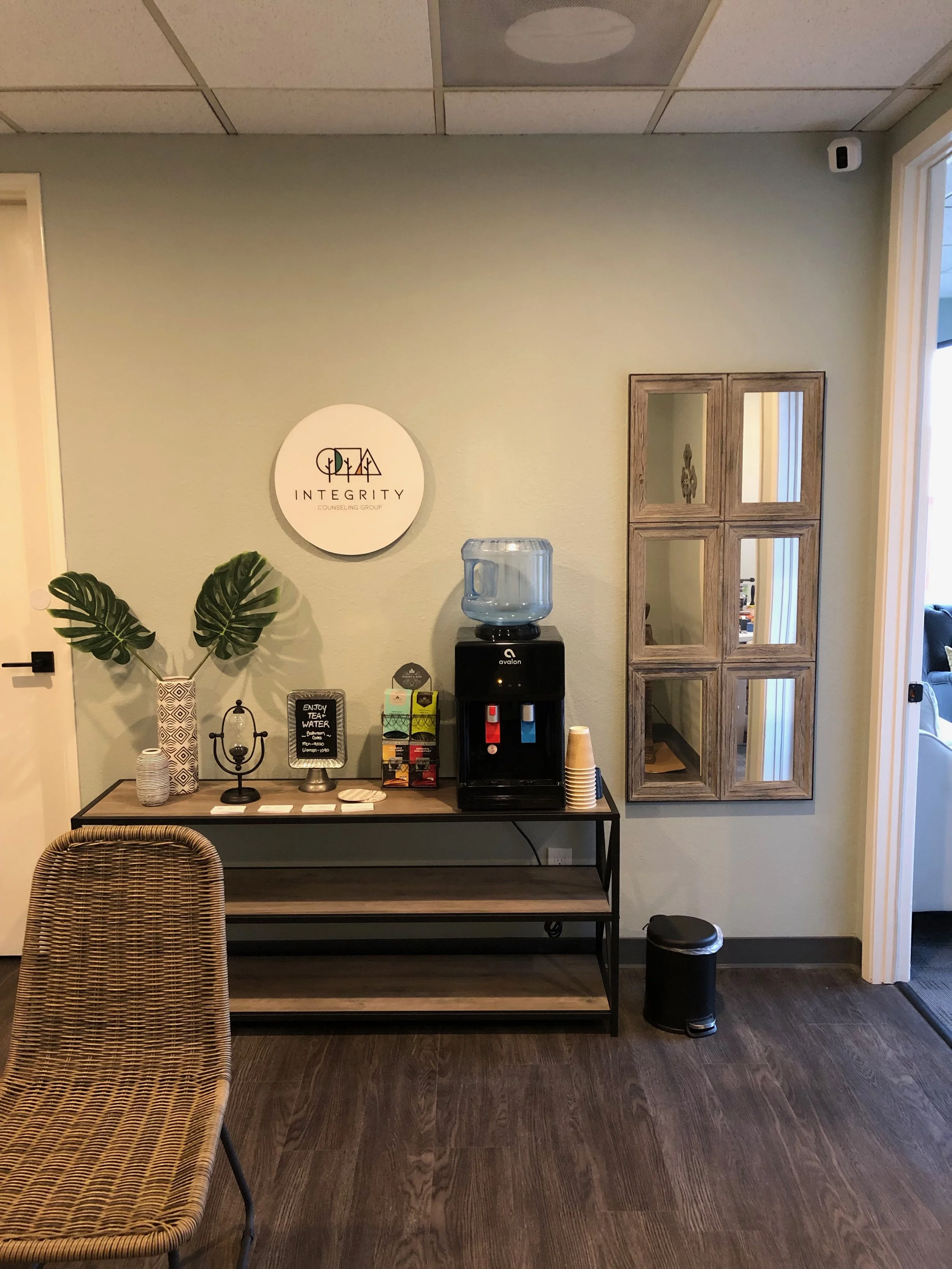If you stop at sobriety you are missing out on the full benefits of healing the addicted brain, such as overcoming “Stinking Thinking.” This is critical for relapse prevention. “Stinking Thinking” is a term often used in 12 Step programs to refer to the negative patterns of thought that add fuel to the fire of addiction. These thoughts sabotage your ability to see the world clearly and take responsibility for your actions.
Read MoreOne of our goals at Integrity Counseling Group is to create a safe space where clients can find freedom from depression, anxiety, marital conflict, addiction, and more. That’s why it is so important to us to make sure that our offices meet a few criteria.
Read MoreYou may feel afraid to be around your loved one, especially if they have expressed suicidal thoughts. This is a perfectly normal way to feel. You love this person, and it’s scary to think that they are suffering and might do irreversible harm to themselves. The important thing in this situation is to stay calm and stay with your loved one. You don’t need to talk about the depression the whole time you are together—you don’t even need to make it better.
Read MoreThe brain is surprisingly malleable. By addressing your teen’s depression early, you will help them form new patterns that they will be able to use going forward in times of stress and sadness. If you wait, your teen is less likely to respond to treatment and will be more likely to relapse into subsequent depressive episodes.
Read MoreIf you think you or a loved one might be struggling with sexual addiction, check out the Sexual Addiction Screening Test (SAST) provided by IITAP, the leading organization in the treatment of sex addiction. Asking for help is the first step.
Read MoreHealthy sex brings a sense of fulfillment and connection. But sometimes sex goes from healthy to problematic. The therapists at Integrity Counseling Group recognize that unhealthy sexuality can cause a lot of confusion, pain, and heartache.
Read MoreChoosing an addiction therapist is an incredibly personal decision. The therapist can look great on paper, but if you don’t connect in-person your recovery might be stalled. It’s important that you feel your therapist has your back and is rooting for your success.
Read MoreOur go-to method for treating trauma and abuse is Eye Movement Desensitization and Reprocessing (EMDR). EMDR has been around for awhile and has plenty of evidence-based research to demonstrate how highly effective it is in treating post-traumatic stress disorder (PTSD) and other forms of trauma.
Read MoreSharp Mesa Vista Hospital in Kearny Mesa created the GRAPES tool to help people with depression overcome their inertia. If you’re struggling with depression, using a fruit-themed mnemonic device may not sound very appealing, but stick with us. We promise it will help!
Read More








